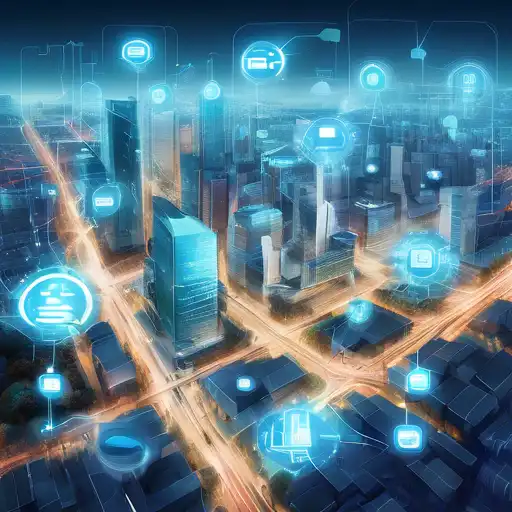Introduction to IoT in Smart Cities
The Internet of Things (IoT) is revolutionizing the way urban areas operate, making cities smarter, more efficient, and more sustainable. By connecting devices, vehicles, and infrastructure to the internet, IoT enables real-time data collection and analysis, leading to improved decision-making and enhanced quality of life for residents.
Key Benefits of IoT in Smart Cities
IoT technology offers numerous benefits for smart cities, including:
- Enhanced Public Safety: IoT devices like surveillance cameras and sensors can monitor public spaces, reducing crime rates and improving emergency response times.
- Efficient Traffic Management: Smart traffic lights and sensors can analyze traffic flow, reducing congestion and pollution.
- Energy Savings: Smart grids and meters optimize energy use, lowering costs and carbon footprints.
- Waste Management: IoT-enabled bins and trucks streamline waste collection, making cities cleaner.
Challenges and Solutions
Despite its benefits, implementing IoT in smart cities comes with challenges such as data privacy concerns and high initial costs. However, solutions like robust cybersecurity measures and public-private partnerships can help overcome these obstacles.
Future Prospects
The future of IoT in smart cities looks promising, with advancements in AI and 5G technology expected to further enhance urban living. As cities continue to grow, IoT will play a pivotal role in ensuring sustainability and efficiency.
Conclusion
IoT is transforming urban landscapes, making cities more livable and sustainable. By addressing challenges and leveraging new technologies, the potential of IoT in smart cities is limitless.
